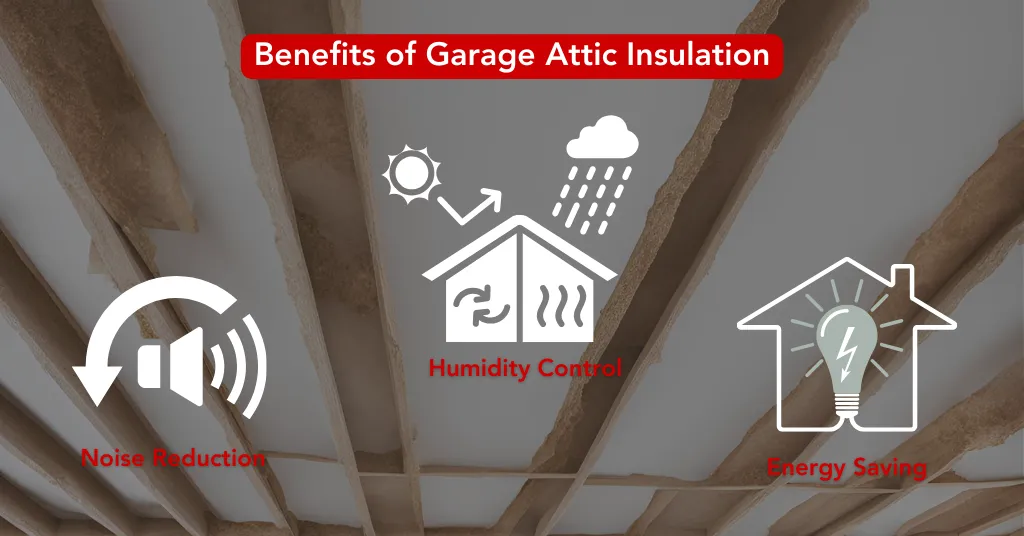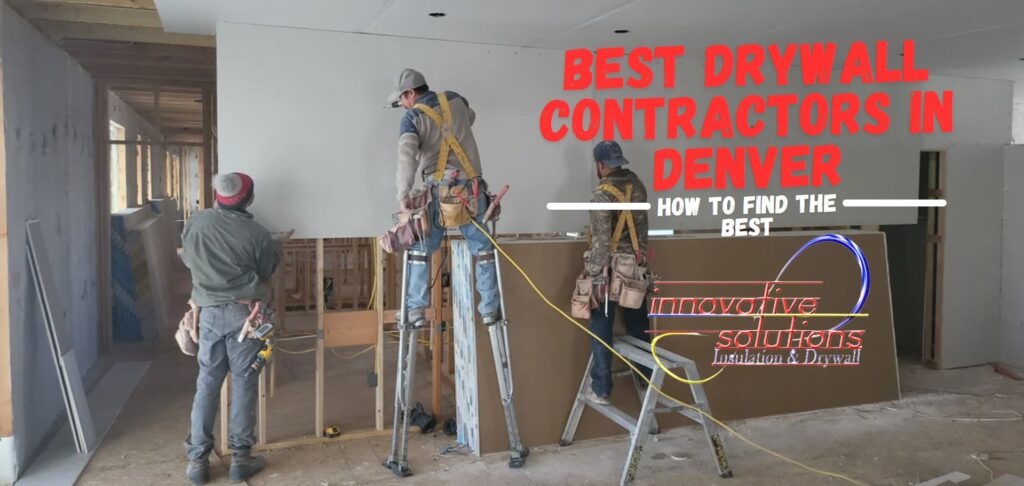A homeowner asked me, “Should I insulate my garage attic? The ceiling is bare, and winters here are a nightmare.” I could understand their worry because I have seen many people go through the same situation in Denver.
In my 20 years in the insulation industry, I’ve helped many people turn their garages from iceboxes in winter into cozy spaces where they can feel comfortable. All credit goes to proper garage attic insulation.
So, ‘Is Garage Attic Insulation Worth It?’ Yes, garage attic insulation is worth investing your money in and it’s not just about warmth; it’s about making your garage useable and energy-efficient.
The U.S. Department of Energy reports that up to 30% of energy loss in homes occurs through poorly insulated spaces. As per a careful estimate, upgrading insulation can provide an 83% return on your home improvement investment.
If it has worked for others, then it will work for you too.
I will help you understand everything that you need to know before you decide to invest in garage attic insulation in Denver.
Insulating Your Garage Attic Matters, Here’s Why
Your garage is a crucial part of your home’s thermal boundary (the barrier that keeps indoor air-conditioned and outdoor air out). Without proper insulation, heat from your garage can seep into your living spaces during summer, and cold drafts can chill your floors and walls in winter.
If you have an attached garage, this problem will be magnified. A poorly insulated garage can:
- Make adjacent rooms uncomfortable.
- Overwork your HVAC system.
- Cause drafts and temperature inconsistencies.
A client reviewed, “After insulating my garage ceiling and walls, the difference was night and day.” If you want the same results, it’s important to look into your garage’s insulation needs.
Looking for Drywall or Insulation Services in the Denver Area and Beyond?

Benefits of Garage Attic Insulation

Here’s why investing in garage attic insulation makes sense:
| Energy Savings | Cuts heating and cooling costs by reducing energy waste. |
| Improved Comfort | Stabilizes temperatures in attached rooms and above-garage spaces. |
| Noise Reduction | Limits noise transfer between the garage and the home. |
| Longer HVAC Lifespan | Reduces strain on your heating and cooling systems. |
| Increased Home Value | Boosts resale value by appealing to energy-conscious buyers. |
| Humidity Control | Protects your garage and home from moisture and mold issues. |
Challenges and Costs
While the benefits I stated are quite impressive and answer the question ‘Is Garage Attic Insulation Worth It’, at the same time, you need to consider the challenges as well.
- Insulating a garage attic can range from $1,500 to $3,000 depending on size and materials.
- Installation of insulation can be a little complex, so don’t go for DIY insulation, as it can be tricky and can lead to problems if not done correctly.
Return on Investment (ROI) for Garage Attic Insulation in USA
| Expense | Estimated Cost | Payoff |
| Initial insulation (average) | $1,500–$3,000 | Saves ~15% annually on heating/cooling costs, according to EPA data. |
| Energy bill reduction | ~$250/year | Over 10 years, you’ll save enough to cover the initial cost and keep enjoying the benefits. |
| Increased home value | +$1,500–$2,000 resale | Energy-efficient upgrades often appeal to potential buyers, especially in colder climates. |
The long-term savings and comfort from insulation usually outweigh the initial costs. Also, refunds and tax credits can help make insulation upgrades more affordable.
However, these numbers might fluctuate depending on the location.
Comparing Insulation Options for Denver
The type of insulation depends on your garage’s needs. I have mentioned all the insulation options for you when insulating your garage attic in Denver.
| Material | Best For | Pros | Cons |
| Fiberglass | Basic, cost-effective insulation | Affordable, widely available | Prone to moisture issues |
| Spray Foam | Air sealing and high R-value areas | Superior performance, airtight seal | Expensive, requires professional install |
| Foam Board | Garage doors, damp-prone areas | High R-value, moisture resistance | Less flexible in tight spaces |
| Rock Wool | Fire-resistant and durable insulation | Great for extreme conditions | Costlier than fiberglass |
| Cellulose | Eco-friendly garage ceilings and walls | Made from recycled materials | Heavier, requires professional install |
Read More: What’s the difference between Cellulose and Fiberglass insulation?
R-value (a measure of thermal resistance) is key when choosing insulation.
For garage attics in Denver, an R-value of R-49 or over is typically recommended for the garage wall, while the ceilings may also require higher values around R-30 to R-40 due to deeper joists to create an effective thermal boundary.
What to Insulate in Your Garage
For attached garages, focus on areas where the air can leak and compromise your house’s comfort:
- Ceiling: Insulate this if there’s a room above the garage.
- Walls: Prioritize walls that share a boundary with the house.
- Garage Door: Consider adding foam or reflective insulation to minimize heat transfer.
Detached garages may only need insulation if you use them for activities, like a workshop or gym.
How to Insulate Like a Pro (or Hire One)
- Always check for cracks, gaps, or weak spots before adding insulation. A homeowner I helped saved 20% on energy costs just by caulking gaps in their attic.
- Invest in ventilation. Remember what we said about breathing? Skip this, and you’re asking for condensation problems.
- Pick the right insulation type. Although fiberglass is budget-friendly, spray foam packs more punch.
Hire an experienced insulation contractor like ISID to ensure every step is executed perfectly.
As someone who’s been in this business for years, it’s often worth the extra investment.
Read More: Is Crawl Space Attic Insulation Worth It?
People Also Ask
Should You Insulate an Attic Over a Garage?
Yes because insulating a garage attic reduces energy loss, stabilizes adjacent room temperatures, and prevents drafts. Proper insulation can also protect against moisture and save on energy bills.
Is It Worth It to Insulate a Garage Ceiling?
Yes because Insulating a garage ceiling improves thermal resistance, especially if there’s a room above. It creates an effective boundary, reducing energy waste and making the space more comfortable.
Is It Worth Adding More Insulation to My Attic?
Yes, improving attic insulation boosts energy efficiency, prevents heat transfer, and reduces HVAC strain. It’s a cost-effective upgrade with long-term savings and increased home comfort.
Does Insulating a Garage Keep It Cooler?
Yes because proper insulation keeps garages cooler in summer by reducing heat flow and stabilizing indoor temperatures, making the space more usable year-round.
What R-Value Do I Need for Garage Insulation in Denver?
Garage walls typically require R-49 or higher insulation, while ceilings need R-30 to R-40 due to deeper joists, ensuring an effective thermal barrier.
To wrap it up, is garage attic insulation worth it? Yes, it is, especially if you’re living in Denver. It’s an investment in your home, It has all the benefits and won’t be heavy on your pocket




